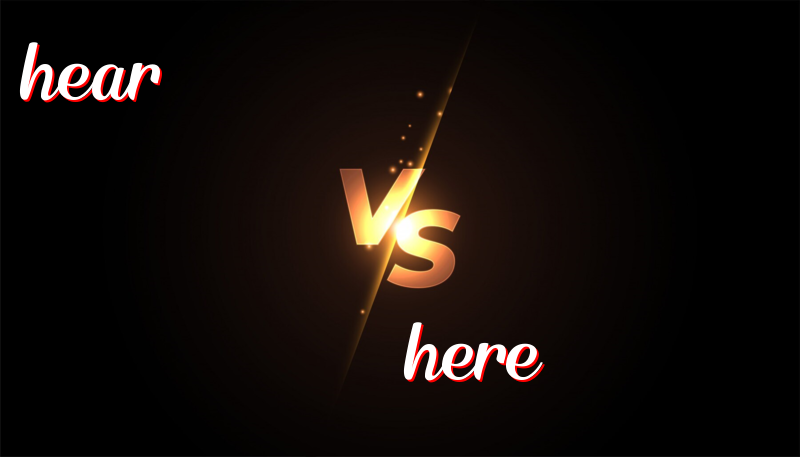Understanding and Distinguishing the Words Hear and Here
December 16, 2024
Hear vs. Here: Understanding the Difference
Even though they sound the same, “hear” and “here” mean different things. Let’s look at their history, usage, and ways to remember them.
History of the Words
- Hear: This word comes from Old English “hieran,” which means to listen with your ears.
- Here: This word comes from Old English “hēr,” meaning in this place.
How to Use “Hear”
“Hear” is a verb. It means to listen or notice sounds with your ears.
Examples of “Hear”
- Can you hear the birds singing?
- I can hear the rain outside.
- Please speak louder; I can’t hear you.
- He likes to hear music every morning.
- Did you hear the news today?
How to Use “Here”
“Here” is an adverb. It means in this place or at this location.
Examples of “Here”
- Come over here and sit with us.
- I left my keys here on the table.
- Here is your jacket; you forgot it.
- We arrived here at noon.
- Is anyone here?
Trick to Remember the Difference
You can remember that “hear” has “ear” in it, which helps you listen. “Here” has “he” at the start, and you point to “he” who is “here.”
Summary of Usage
Remember, “hear” is for listening, and “here” is for a place. Use “hear” when talking about sounds, and “here” when talking about locations.

Leave a Reply
You must be logged in to post a comment.